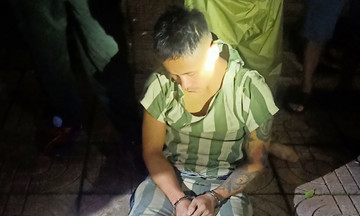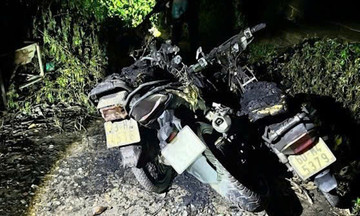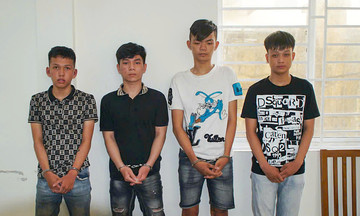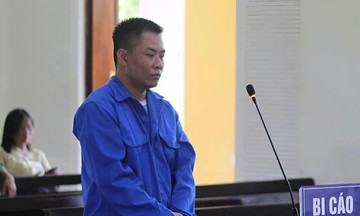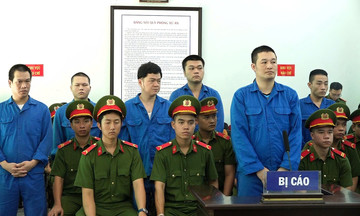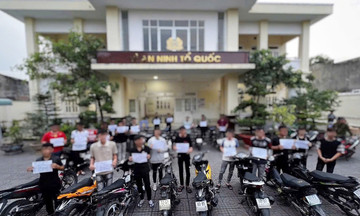On 30/7, the Hanoi People’s Court sentenced Trinh Hong Phong, 30, to 15 months in prison for exceeding the limits of legitimate self-defense. The incident stemmed from a confrontation on 27/8/2023 at an intersection in Hanoi's Thanh Ha urban area.
Nguyen Tuan Anh, 27, behaving erratically, brandished a knife at passersby. He then entered a roadside cafe and slapped a stranger several times, causing the victim to flee. Tuan Anh returned with a homemade gun, threatening those present.
Phong, who had just arrived, was cornered and unable to escape. Tuan Anh approached him, aiming the gun. Phong’s friends intervened, striking Tuan Anh with metal pipes and causing him to fall. While Tuan Anh was on the ground, Phong hit him in the head with a golf club, resulting in severe brain injury and paralysis.
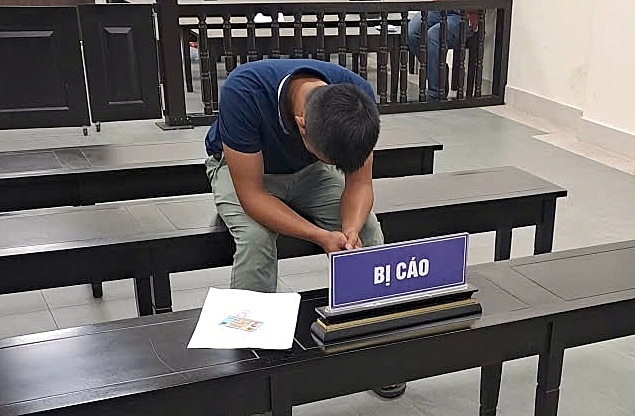 |
Trinh Hong Phong at the court on 30/7. Photo: Danh Lam |
Trinh Hong Phong at the court on 30/7. Photo: Danh Lam
Four months later, an investigation revealed that Tuan Anh suffered an 86% bodily injury. He remains unconscious and paralyzed. Tuan Anh was charged with threatening to kill and illegal use of weapons. However, due to his condition, he has not been interrogated or undergone psychiatric evaluation. His case has been suspended.
Phong claimed he acted in self-defense. Tuan Anh’s wife accepted 330 million VND in compensation and pleaded for leniency.
The case highlights the fine line between self-defense and excessive force. Lawyer Trinh Van Tuyen of Giang Thanh Law Office in Hanoi explains that Article 22 of the Criminal Code defines legitimate self-defense as an act of protecting one's own legitimate rights and interests, those of others, or the interests of the State, agencies, or organizations by necessarily counteracting a person who is infringing upon those interests.
However, exceeding the limits of legitimate self-defense is defined as a counter-attack clearly beyond what is necessary and inappropriate to the nature and level of social danger of the infringing act.
Legitimate self-defense requires three conditions: The act must aim to protect legitimate rights or interests; it must occur during an infringement; and the response must be necessary.
"Necessary counter-attack" means actions sufficient to neutralize the threat and disable the perpetrator from continuing the unlawful act. Tuyen gave an example: If A attacks B with a weapon, and B, being stronger or skilled in martial arts, disarms and subdues A, it is legitimate self-defense. But if B continues to attack A after neutralizing the threat, it becomes excessive force.
In Phong’s case, Tuyen argues that his friends’ actions were legitimate self-defense, but Phong's subsequent attack with the golf club was excessive. The prosecution agreed, charging only Phong.
Hai Thu



